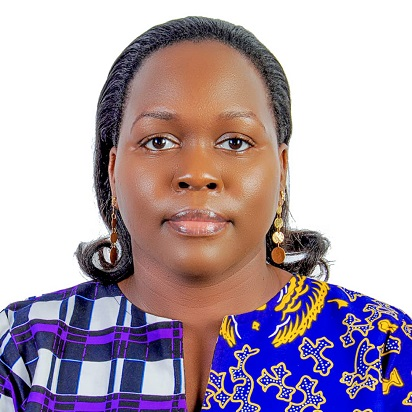Barbara Asiimwe, Senior Manager – Salaried, at dfcu Bank
We are four months into a new year and many of us are still at the initial stages of our yearly resolutions which we set in the hopes of improving our lives. While aspirations vary from person to person, achieving financial stability seems to be a key focus area for many of us. Whether it’s paying off debt, saving for a dream vacation, or investing for the future, taking control of your finances can lead to greater stability and freedom.
Barbara Asiimwe, Senior Manager – Salaried, at dfcu Bank shares practical tips on how individuals can attain financial stability, both in the short and long-run.
Define Your Goals
The first step to financial steadiness is defining your goals. You must be both realistic and yet ambitious with the goals. Whether it’s setting up an emergency fund, saving for a down payment on a house, or starting a retirement account, having clear objectives will guide your financial decisions and keep you motivated.
Create a Budget
A budget is powerful because it will help you to keep track of your income and expenses. Start by listing all your sources of income and then categorize your expenses, including fixed costs like rent and utilities, variable expenses like groceries and entertainment, and savings goals.
Finally, identify the areas where you can cut back and allocate these extra funds towards your key priorities. Budgeting allows you to manage your money more effectively.
Set up an Emergency Fund
Life is unpredictable and having an emergency fund can provide a vital financial safety net when unexpected expenses arise. Aim to save three to six months’ worth of living expenses in a separate savings account to take care of these unplanned events. Start small if you need to but make regular contributions a priority – you will be grateful for planning ahead when the unexpected finds you at least financially prepared.
Save for the future
Whether you’re saving for retirement, a child’s education, or a dream vacation, it’s essential to prioritize long-term savings goals. Financial institutions like dfcu Bank offer a wide range of products to help customers plan for such goals. With Investment Club Accounts, Personal Savings Accounts, Fixed Deposit Accounts, Life Insurance and Education Savings plans, dfcu gives our clients multiple options to save for the future.
We also make it possible to automate your contributions which ultimately creates consistency in the way one saves money periodically.
Monitor your Progress
Make it a habit to regularly review your finances to track your progress. Adjust your budget and savings plan as needed to stay on track. You should also celebrate your achievements along the way, no matter how small, and use setbacks as learning opportunities to improve your financial habits.
Utilize available Personal Finance Tools
One of the tools you can use in your journey to financial fitness is a Personal Salary Loan. Personal Salary Loans allow individuals to borrow money based on their income and creditworthiness. Unlike other forms of debt, personal salary loans typically offer lower interest rates and more favourable terms, making them an attractive option for consolidating debt or financing large expenses.
Currently, dfcu Bank is running Personal Salary Loans campaign dubbed ‘Ggwa Mu Bintu’, that allows our customers to access credit of up to UGX 84 million.
One of the primary advantages of personal salary loans is their flexibility. Whether one is looking to make a land purchase or pay for further education for themselves or their children, these loans allow for one to manage their finances in an easy manner. Additionally, these loans are unsecured and accessible in a short time.
With fixed monthly payments and a predetermined repayment period, Personal Salary Loans offer predictability and stability, allowing you to plan and budget effectively.
Furthermore, dfcu Bank, ensures you have access to financial advisors to guide customers as they choose the best loan option for their unique needs.
Achieving financial fitness requires discipline, dedication, and a willingness to make informed decisions about your money.
By doing a few things right and being consistent, you can achieve a brighter financial future.




